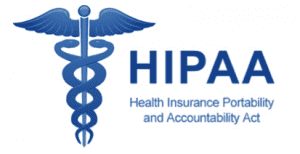 You may have heard of HIPAA, or been asked to sign a form the last time you visited your doctor. Nearly every health care provider now requires its patients to sign acknowledgement forms indicating they are aware of the HIPAA regulations. How many of us know what HIPAA is for and what these health care regulations require? It is helpful, while you are creating or modifying your estate planning, to understand how HIPAA authorizations play a role in your estate and incapacity planning.
You may have heard of HIPAA, or been asked to sign a form the last time you visited your doctor. Nearly every health care provider now requires its patients to sign acknowledgement forms indicating they are aware of the HIPAA regulations. How many of us know what HIPAA is for and what these health care regulations require? It is helpful, while you are creating or modifying your estate planning, to understand how HIPAA authorizations play a role in your estate and incapacity planning.
What is HIPAA?
HIPAA is the acronym that stands for Health Insurance Portability and Accountability Act, which was passed in 1996. In 2003, the U.S. Department of Health and Human Services passed regulations that apply to HIPAA. These laws impose serious penalties upon health care providers who, among other things, release any Protected Health Information without authorization. This includes releasing unauthorized medical information that is normally contained in a patient’s medical records. Because of these very strict laws, health care providers have become very hesitant to release medical records or any other medical information to anyone other than the patient.
What medical information is protected by HIPAA?
According to the statute and applicable regulations, “protected health information” includes any information created or received by a covered entity, which relates to the mental or physical health condition of an individual, or that could be used to identify that individual. The legal definition of “health information” is:
Health information means any information, whether oral or recorded in any form or medium, that –
(A) is created or received by a health care provider, health plan, public health authority, employer, life insurer, school or university, or health care clearinghouse; and
(B) relates to the past, present, or future physical or mental health or condition of any individual, the provision of health care to an individual, or the past, present, or future payment for the provision of health care to an individual.
“Covered entities” include health care providers, as well as pharmacies, insurance companies and nursing homes.
The need for HIPAA authorizations in incapacity planning
In light of the HIPAA regulations, health care providers will not release medical information without the required authorization. As such, every comprehensive estate and/or incapacity plan needs to include a properly executed HIPAA authorization. Otherwise, your spouse or children, will be unable to obtain any information regarding your condition, in the event you become incapacitated. The HIPAA authorization allows any person you name in the release to receive protected medical information from your health care providers. It is critical that the person you identify as your agent for a Health Care Power of Attorney be authorized to receive your medical information. If you do not include a HIPAA authorization that will cover your agent(s) for a Health Care Power of Attorney, a Durable Property Power of Attorney, as well as your trustee(s) in your revocable living trust.
Another consideration is the need for your attorney to have access your medical records, for instance, if a determination as to your incapacity is required at some point. The reality is, there may be many individuals, designated in your various estate planning documents, who will need access to your medical information in order to fulfill their fiduciary duties. The HIPAA authorization will give them that access. The alternative would be going to court.
If you have questions regarding HIPAA authorizations, or any other incapacity planning needs, please contact Anderson, Dorn & Rader, Ltd., either online or by calling us at (775) 823-9455.




